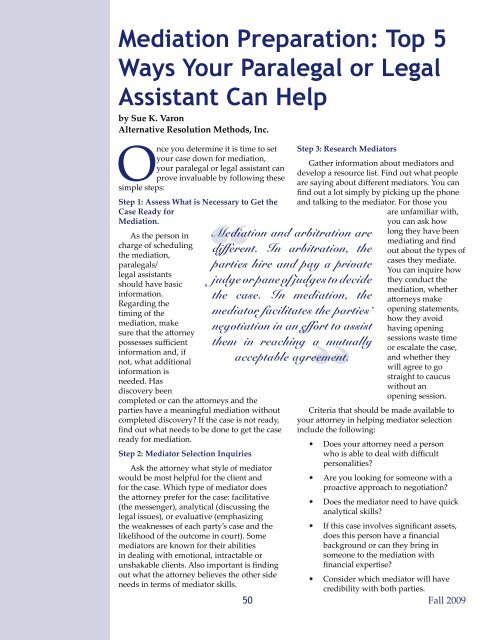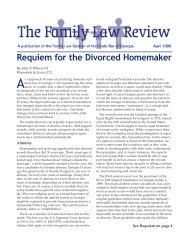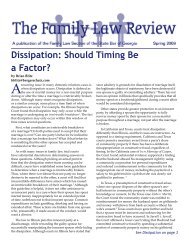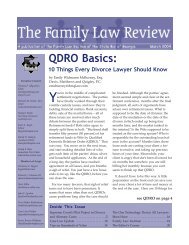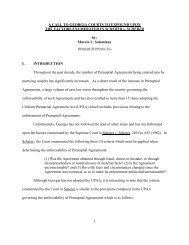Fall 2009 - Atlanta - Divorce Lawyer - Family Law - Atlanta Georgia
Fall 2009 - Atlanta - Divorce Lawyer - Family Law - Atlanta Georgia
Fall 2009 - Atlanta - Divorce Lawyer - Family Law - Atlanta Georgia
You also want an ePaper? Increase the reach of your titles
YUMPU automatically turns print PDFs into web optimized ePapers that Google loves.
Mediation Preparation: Top 5Ways Your Paralegal or LegalAssistant Can Helpby Sue K. VaronAlternative Resolution Methods, Inc.Once you determine it is time to setyour case down for mediation,your paralegal or legal assistant canprove invaluable by following thesesimple steps:Step 1: Assess What is Necessary to Get theCase Ready forMediation.“As the person incharge of schedulingthe mediation,paralegals/legal assistantsshould have basicinformation.Regarding thetiming of themediation, makesure that the attorneypossesses sufficientinformation and, ifnot, what additionalinformation isneeded. Hasdiscovery beencompleted or can the attorneys and theparties have a meaningful mediation withoutcompleted discovery? If the case is not ready,find out what needs to be done to get the caseready for mediation.Step 2: Mediator Selection InquiriesAsk the attorney what style of mediatorwould be most helpful for the client andfor the case. Which type of mediator doesthe attorney prefer for the case: facilitative(the messenger), analytical (discussing thelegal issues), or evaluative (emphasizingthe weaknesses of each party’s case and thelikelihood of the outcome in court). Somemediators are known for their abilitiesin dealing with emotional, intractable orunshakable clients. Also important is findingout what the attorney believes the other sideneeds in terms of mediator skills.50Step 3: Research MediatorsGather information about mediators anddevelop a resource list. Find out what peopleare saying about different mediators. You canfind out a lot simply by picking up the phoneand talking to the mediator. For those youare unfamiliar with,you can ask howMediation and arbitration aredifferent. In arbitration, theparties hire and pay a privatejudge or pane of judges to decidethe case. In mediation, themediator facilitates the parties’negotiation in an effort to assistthem in reaching a mutuallyacceptable agreement.“long they have beenmediating and findout about the types ofcases they mediate.You can inquire howthey conduct themediation, whetherattorneys makeopening statements,how they avoidhaving openingsessions waste timeor escalate the case,and whether theywill agree to gostraight to caucuswithout anopening session.Criteria that should be made available toyour attorney in helping mediator selectioninclude the following:• Does your attorney need a personwho is able to deal with difficultpersonalities?• Are you looking for someone with aproactive approach to negotiation?• Does the mediator need to have quickanalytical skills?• If this case involves significant assets,does this person have a financialbackground or can they bring insomeone to the mediation withfinancial expertise?• Consider which mediator will havecredibility with both parties.<strong>Fall</strong> <strong>2009</strong>


